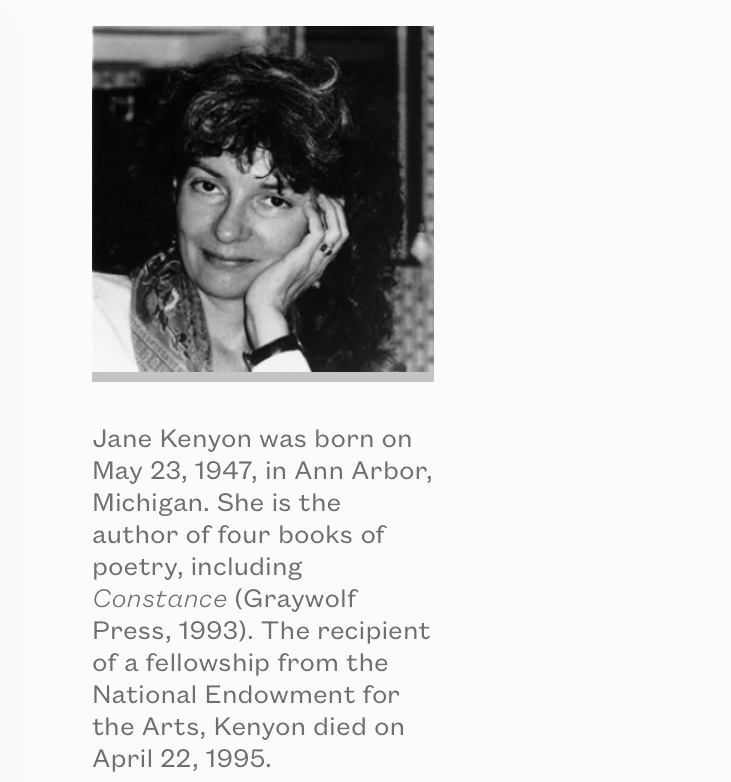GRATITUDE
I would maintain that thanks are the highest form of thought; and that gratitude is happiness doubled by wonder.
Dictionaries often define gratitude as a feeling, but gratitude as a virtue is more a state of being than a feeling.
Submit your personal story or favorite illustration, quote, Bible verse, etc. that illustrates a specific virtue to [email protected], then click on the virtue of your choice on the Virtues page to see your story or the stories and illustrations of others.
June 27, 2021
“Our goal should be to live life in radical amazement. To get up in the morning and look at the world in a way that takes nothing for granted. Everything is phenomenal. Everything is incredible. Never treat life casually. To be spiritual is to be amazed.” —Abraham Joshua Heschel
I got out of bed
on two strong legs.
It might have been
otherwise. I ate
cereal, sweet
milk, ripe, flawless
peach. It might
have been otherwise.
I took the dog uphill
to the birch wood.
All morning I did
the work I love.
At noon I lay down
with my mate. It might
have been otherwise.
We ate dinner together
at a table with silver
candlesticks. It might
have been otherwise.
I slept in a bed
in a room with paintings
on the walls, and
planned another day
just like this day.
But one day, I know,
it will be otherwise.

June 27, 2021
The Lanyard, by Billy Collins
The other day I was ricocheting slowly
off the blue walls of this room,
moving as if underwater from typewriter to piano,
from bookshelf to an envelope lying on the floor,
when I found myself in the L section of the dictionary
where my eyes fell upon the word lanyard.
No cookie nibbled by a French novelist
could send one into the past more suddenly—
a past where I sat at a workbench at a camp
by a deep Adirondack lake
learning how to braid long thin plastic strips
into a lanyard, a gift for my mother.
I had never seen anyone use a lanyard
or wear one, if that’s what you did with them,
but that did not keep me from crossing
strand over strand again and again
until I had made a boxy
red and white lanyard for my mother.
She gave me life and milk from her breasts,
and I gave her a lanyard.
She nursed me in many a sick room,
lifted spoons of medicine to my lips,
laid cold face-cloths on my forehead,
and then led me out into the airy light
and taught me to walk and swim,
and I, in turn, presented her with a lanyard.
Here are thousands of meals, she said,
and here is clothing and a good education.
And here is your lanyard, I replied,
which I made with a little help from a counselor.
Here is a breathing body and a beating heart,
strong legs, bones and teeth,
and two clear eyes to read the world, she whispered,
and here, I said, is the lanyard I made at camp.
And here, I wish to say to her now,
is a smaller gift—not the worn truth
that you can never repay your mother,
but the rueful admission that when she took
the two-tone lanyard from my hand,
I was as sure as a boy could be
that this useless, worthless thing I wove
out of boredom would be enough to make us even.
May 19, 2021:
A young monk joined an order that required total silence. At his discretion, the abbot could allow any monk to speak. It was nearly five years before the abbot approached the novice monk and said, “You may speak two words.”
Choosing his words carefully, the monk said, “Hard bed.”
With genuine concern, the abbot said, “I’m sorry your bed isn’t comfortable. We’ll see if we can get you another one.”
Around his 10th year in the monastery, the abbot came to the young monk and said, “You may say two more words.”
“Cold food,” the monk said.
“We’ll see what we can do,” the abbot said.
On the monk’s fifteenth anniversary, the abbot said again, “You may now speak two words.”
“I quit,” the monk said.
“It’s probably for the best,” replied the abbot. “You’ve done nothing but gripe since you got here.”
Reverend Will Bowen
June 29, 2021
“Companionship, a Cliff Bar (food), warmth, shelter— these are fundamental human needs. In regular life, we take them for granted. But on the trail, where life is harder and unpredictable, these needs become everything. They are not always available, and when they are, they are appreciated to the utmost. This is part of the beauty of the trail. It simplifies life and restores an appreciation of core values. It allows you to know what is really important.”
(from “Hikertrash: Life on the Pacific Crest Trail”, by Erin Miller.)
